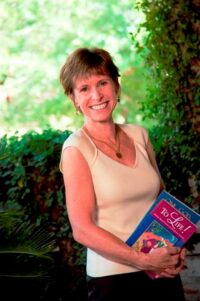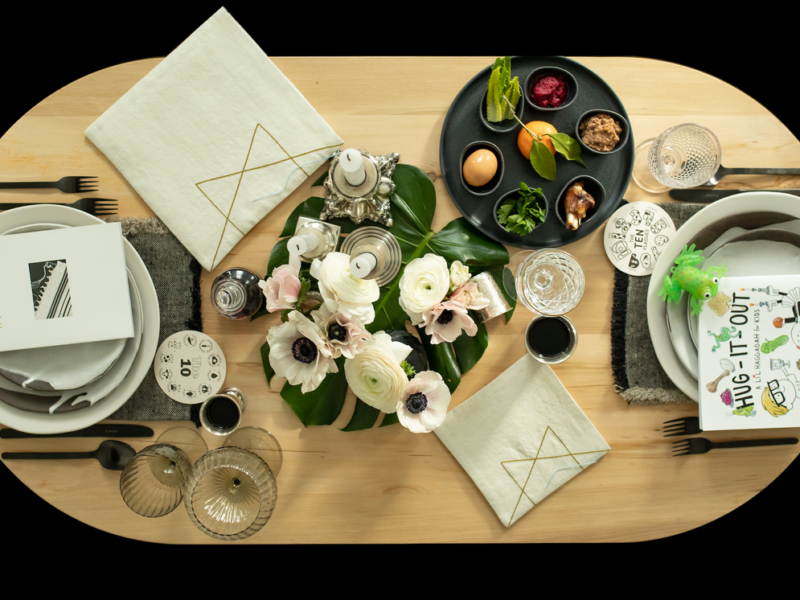September 18, 2020, heralds the first night of Rosh Hashanah and the advent of the Jewish year 5781. But accompanying the traditional apples and honey this year is an unprecedented question: Why is this Rosh Hashanah different from all other Rosh Hashanahs?
In years past, we took for granted that we could celebrate the holiday together – with family, friends and members of our community – at services, meals and communal gatherings. We schlepped kugels, briskets and honey cakes across town, happily anticipating the joy of being together as we lifted our glasses to toast a new year of good health, good deeds and a good life.
Fast forward to today, as we are painfully learning to accept the reality of the coronavirus and the varied, dramatic changes it has required of us in how we live, work and socialize. And now, we must also accept that COVID-19 will affect our experience of celebrating the Jewish New Year.
Can we still find ways to come together as a Jewish community and nourish our spiritual health, at a time when gathering at services and family meals is necessarily limited or prohibited in order to protect our physical health?
Traditionally, the thirty days preceding Rosh Hashanah, which occurs during the month of Elul, is a period of personal reflection and introspection. In the simplest of terms, we are asked to reflect on where we are now, where we have been in the past year and where we want to be in the year ahead. If there was ever a situation that caused us to jump-start the Elul process of introspection, COVID-19 wins hands down.
In a spiritual context, COVID-19 offers us a way to enhance our High Holiday experience rather than limit it. We have been asked, perhaps forced in some cases, to shelter in place. True, we have had to restrict our outward mobility – but does this not give us the time and opportunity to increase our inward mobility?
Perhaps this new year, we don’t go out, we go in. Into our hearts, minds and souls – to truly reflect on what is important to us and how we can change the things in our lives with which we are not satisfied. Isn’t that the essence of the holiday itself?
buy zyprexa online
At Rosh Hashanah, we ask ourselves questions that dig deep beneath the surface. Questions like: What am I doing with my life? Am I satisfied with my relationships – to God and others? Do I give enough of myself? What do I want to change in the coming year? Can I be a better person, a more understanding parent, a more supportive partner? This type of hard questioning, called heshbon ha-nefesh in Hebrew, literally means “an accounting of the soul.”
Rosh Hashanah presents us with the opportunity to engage in meaningful introspection that can become the catalyst for personal growth and renewal. We link ourselves to the first Creation because we are ‘reborn’ through the efforts we take to renew ourselves spiritually in positive ways.
This year we will not be together physically; most services will be held remotely on Zoom or in limited spaces where physical hugging or sharing a Kiddush lunch will not occur. But we can do something that will bring us closer to who we want to be and how we want to be as a member of the Jewish community in the future.
The High Holidays require personal accountability for our actions: our good deeds as well as our wrongs and shortcomings. The Yom Kippur liturgy tells us in no uncertain terms that for sins between a person and God, we must ask God for forgiveness. But for wrongs that we have committed towards others, we must ask personally and directly for forgiveness. Without that, even God cannot forgive us.
Many of us have experienced the emotional reward that accompanies the act of forgiveness. Letting go of old injuries and hurt feelings frees up the energy we use when we stay mad at those who have hurt or betrayed us. Instead, that energy can be used more positively for things that will bring us awareness, happiness, fulfillment and love.
We may be isolated or physically separated from others this holiday season. But if there was ever a time that inspired us to reach out to those we may have hurt or wronged – that time is now. A phone call, email, or letter can become the portal to rebuilding a relationship that has turned sour; it can be the genesis of a new way of relating to a family member or colleague.
buy zyvox online
COVID-19 has made us all vulnerable in different ways. We fear losing our health, even our lives, as well as our jobs, homes and the security we have worked a lifetime to create. But in this moment of deep personal and communal uncertainty, we have the power to change our inner landscape by engaging in meaningful introspection and acts of compassion and forgiveness.
Amy Hirshberg Lederman is an award-winning author, nationally-syndicated columnist, Jewish educator, international public speaker and attorney. She has written more than 300 columns and essays that have been published nationwide, amyhirshberglederman.com.







